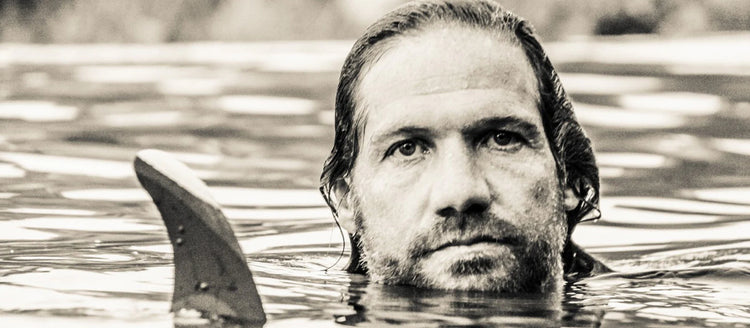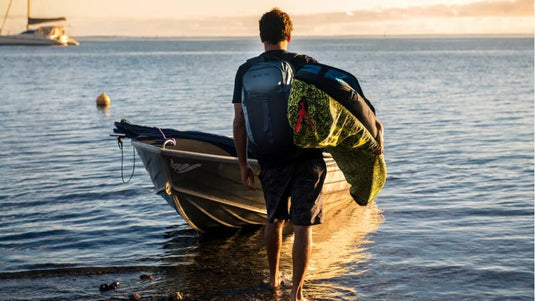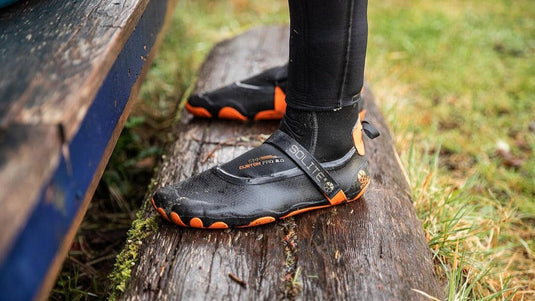Interview With the Founder of Futures Fins, Vince Longo

Since 1996, Futures has pushed the boundaries of surfboard fins in every direction. From the fin box design to the materials used, to even how we talk about and categorize fins, Futures always has looked to improve on what's available. We've carried Futures fins since the beginning and most everyone who works at the shop swears by 'em. That being said, we were really stoked to have the chance to ask Futures founder, Vince Longo a couple of questions and hear more about Futures from the source.
What was the catalyst to start Futures?
Fin systems were becoming the norm for shortboards, and we were not satisfied with
what was currently available to the market.
What inspired the decision to go with a single tab fin box design? Did the
Futures box we know today have to go through a lot of different prototypes to
come to or was it pretty natural?
We wanted a system that connected the whole base of the fin to the board. We went
through about three revisions. Two were focused on efficient installation, and the last one was to keep the fin in the board. It is a very simple design which is what you work
toward as a designer.
When surfers look for new fins, is there an aspect of a fin’s design that you
think goes overlooked?
In the beginning flex and foil were always overlooked, since they were an afterthought
with glass-ons. After 20 years of education, the consumer is catching up.

Many of our team riders and employees really like the JJF template, what do you think makes that fin work well for so many different surfers and types of waves?
The JJF is a very balanced fin with regards to template, foil, and flex. It is not extreme in any way and it was designed for all conditions. Most surfers are looking for a neutral fin that is a dependable feel.
Looking around, Futures is the only fin company that sticks to making just fins. Was that a principle decision to focus only on fins and not worry about traction, leashes, or other accessories?
Yes, we made a conscious decision to not enter another product category unless we brought an innovation or technology to the market. Another “me too” product to increase sales is not our style.
For most surfers planning a trip, what would you recommend they pack in fins
before they head out?
All you need is 3 sets of fins. Identify the size or area of fins that correlate with your
weight.
Of all the fins Futures currently makes, is there one that comes to mind as a
“sleeper”? Like one template that might not be as popular as the F-Series
or AM fin but you think a lot of surfers should try out?
The WCT or Tim Stamps 5-fin. These are always in our top 10 best-selling SKUs.
What was the process of designing Gun/Tow-In fins for huge surf and what makes them a little more expensive than your average set of fins?
It was trial and error. Brewer and Lopez were making boards for Laird. Jack Reeves
was glassing them on the North Shore. Laird was discovering that he was losing grip
getting drift in the bowl at Jaws on 50ft waves. The glassed on flat-sided fin was not
working. So we used foils meant for high speeds with less lift potential to settle the
board down. We use a very dense material that takes longer to sand and cut.
Finally, are there any new fin materials or tech in the pipeline for Futures?
Yes, we have a new fin box and fin construction that will be released in spring. All of which are made at our headquarters in Huntington Beach.
Conclusion 
There you have it, to check out our full selection of Futures fins click here.
Thanks to Vince for the time and Nate Saso for setting it up
If you have any questions about fin templates, sizing or materials give us a call at 1-888-546-6176 or shoot us an email at support@cleanlinesurf.com
See you in the water!













What Our Customers Are Saying